The Black in Black Musical Theatre
Daughters of Lorraine Podcast Season 2 Episode 2
Leticia Ridley: Welcome to Daughters of Lorraine, a podcast from your friendly neighborhood Black feminist exploring the legacies, present, and futures of Black theatre. We are your hosts, Leticia Ridley.
Jordan Ealey: And Jordan Ealey.
Leticia: On this podcast, we'll discuss Black theatre history, conduct interviews with local and national Black theatre artists, scholars, and practitioners, and discuss plays by Black playwrights that have our minds buzzing. Please stay tuned.
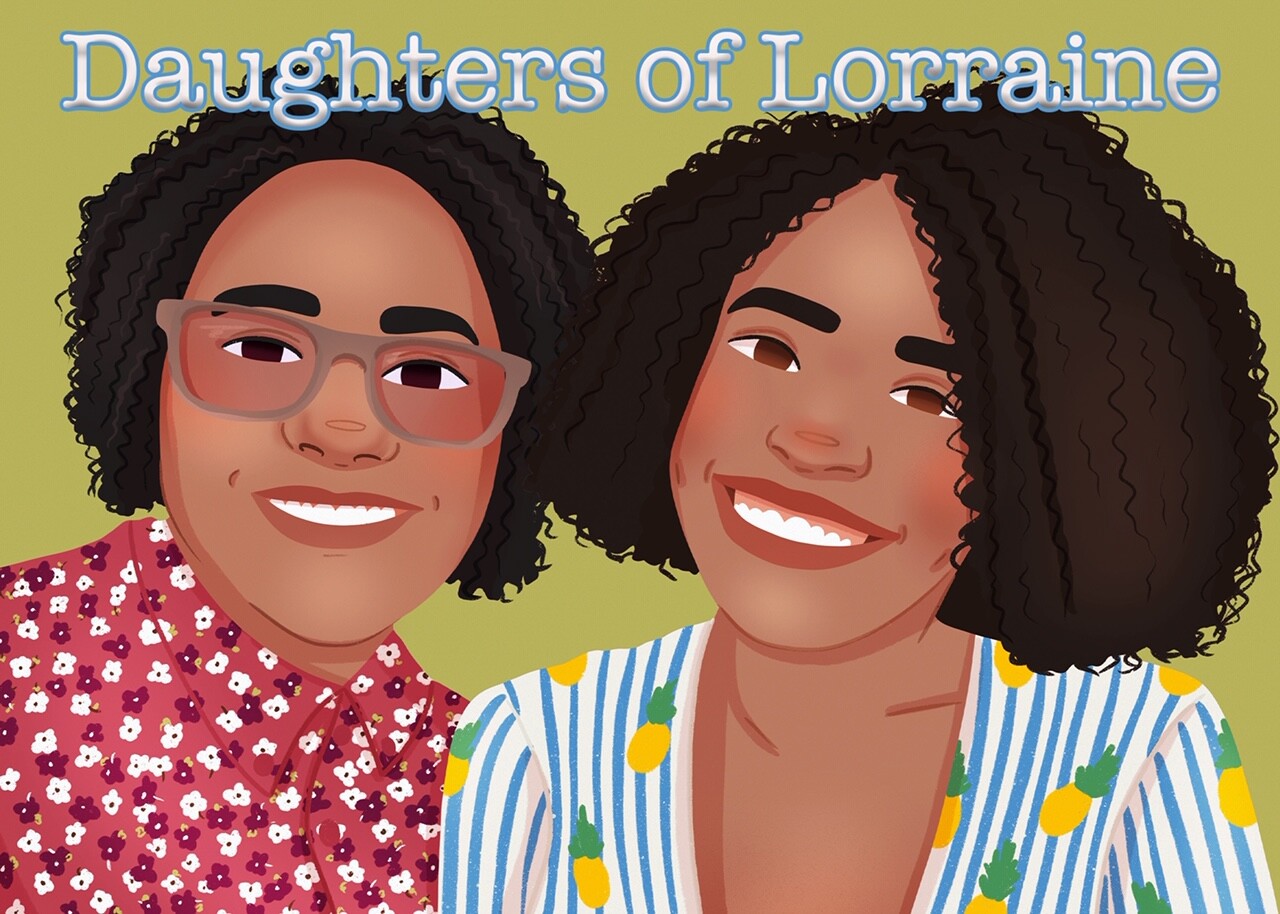
Daughters of Lorraine Podcast logo by Clarissa Bittes.
Leticia: Following the success of his semi-autobiographical novel Go Tell it on the Mountain, writer James Baldwin wanted to try his hand at theatre. His attempt resulted in the Amen Corner, a story of John Grimes, an intelligent Black teenager in 1930s Harlem, his complex relationship with his parents and his church. The play was first published in 1954 and first produced in 1955 by the Howard University Players in Washington DC before it went to Broadway ten years later in 1965. The play also inspired a short-lived 1983 musical adaptation that went to Broadway entitled Amen Corner.
Both Jordan and I had an opportunity to see a production of the play, which is not often revived, at Shakespeare's Theatre Company in Washington DC pre-pandemic earlier this year in February. Directed by Whitney White, this revival inspired us to consider two important questions. One: is this production a musical? And two: what is a Black musical?
Jordan: Gun and Powder is a musical with books and lyrics by Angelica Chéri and music by Ross Baum, who met at New York University's Tisch School of the Arts graduate musical theatre writing program. The musical is drawn from Chéri's own family history. While thumbing through her family photo albums, she came across a picture of what she assumed to be two white women. Her grandmother revealed that the women in the photograph were not white but rather two Black women who were a part of their family, Mary and Martha Clarke, or the infamous Clarke sisters. Thus, Gun and Powder stages the legend of the Clarke sisters in their notorious misadventures as outlaws in the west.
There's a way ... of thinking how Blackness changes the genre of musical theatre and how Black artists, creators, playwrights were thinking about Black musical tradition outside of the parameters of musical theatre at large, which often the boundaries are contained within a lexicon of whiteness.
Gun and Powder recently had its world premiere at Signature Theatre in Arlington, Virginia, running from 28 January to 23 February 2020. The musical was Chéri's thesis while she was a student at NYU and further developed and discovered through Signature's SigWorks musical theatre live program in 2017. It was awarded the prestigious Richard Rodgers award from the American Academy of Arts and Letters.
The production was directed by director playwright Robert O'Hara and featured Solea Pfeiffer and Emmy Raver-Lampman as Mary and Martha Clarke respectively.
Leticia: This past February, after seeing the Amen Corner, Jordan and I did the seemingly impossible. We scored last-minute tickets to see Gun and Powder at Signature. Seeing these two productions together led us to consider the fact that we have not yet discussed our love of Black musical theatre.
Jordan: So today's episode is a retrospective one as we think about those two incredible productions we saw in February and discuss Black musical theatre, where it's been and where it's going. Taken together, the Amen Corner and Gun and Powder offer two different kinds of musical theatre productions and push us to consider what exactly can be considered a musical.
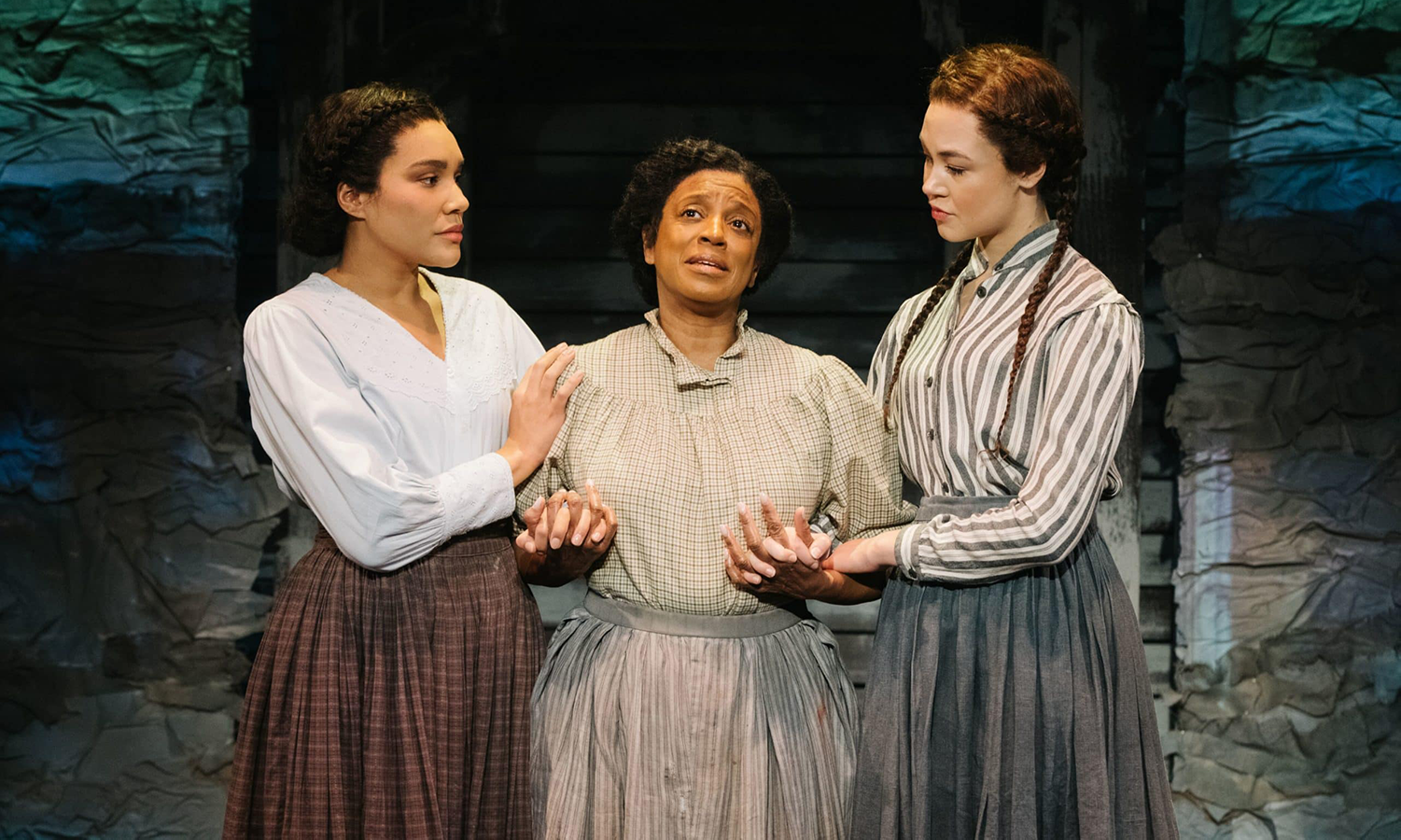
Emmy Raver-Lampman as Martha, Marva Hicks as Tallulah, and Solea Pfeiffer as Mary in Guns & Powder at Signature Theatre. Photo by Christopher Mueller.
Jordan: Hello, hello, everyone. Welcome back to another episode of Daughters of Lorraine. I am so looking forward to this conversation we're about to have today. We're about to do a blast from the past.
Leticia: That is right. And this is your jam. We're in your research area today. You listeners are definitely in for a treat.
Jordan: Yes. I'm very excited. It was really weird, because we both talk about musicals all the time. We listen to musicals. We go see musicals, and yet we had yet to discuss that on the podcast yet.
Leticia: I know. Looking back, it's fairly interesting, but I guess it goes to the fact that Black musicals aren't often staged, specifically in the DC area, or even I would even say Broadway. So I'm really excited to think about how we think about musical theatre today, what we consider a musical, what falls outside of what a musical is, and also just to talk about two incredible productions that we've seen that we were going to talk about before the world shutdown on the podcast. I'm so excited that we actually have an opportunity finally to sit down and talk about them.
Jordan: Exactly. For those who may not be familiar, my area of specialty for my research is in specifically Black women in musical theatre, but broadly I would say Black musical theatre history, even contemporary Black musical theatre. So yeah. Leticia's right when she says that this is also something that I would say that I'm pretty familiar with. I'm excited to get to talk to Leticia about it, who's a musical scholar in her own right.
Leticia: I dabble a little bit, but I will say I do enjoy a good musical. It has always been my dream to live a life where you can just burst out randomly in song to tell folks about your feelings.
Jordan: Absolutely. That definitely seems like it would be something you'd be interested in. So before we get into talking about the actual productions, I quickly wanted to think about some overarching debates I would say in musical theatre research or even among practitioners or musical theatre are what makes a Black musical. What is a Black musical? Because some of the musicals that we would consider to be Black musicals weren't actually written by Black people.
Leticia: Shuck and suck it now. You're really getting in the weeds.
Jordan: It's something that I didn't consider as in depth before I started actually doing research in this area, but you think of musicals like The Color Purple, for example, or Caroline, or Change or Porgy and Bess. These are not musicals that were solely authored and, in some case, had no Black people on the writing or creative teams that contributed to the construction of the musical, and yet this is what we think about when we think about the Black musical theatre canon. I don't know. What are your thoughts on that, Leticia?
Leticia: My thoughts on that, I think you're right. I think it's interesting the way that representation comes into stand for categorizing theatre. You mentioned The Color Purple or Caroline, or Change. It is very much based on the bodies who are on stage. If we see Black people, therefore it is. Or if we see a majority Black people on stage, therefore it is a Black musical.
I think what I love about your research so much and the work that you're doing is you're actually expanding scholarship on musical theatre to think about who are the driving forces that you don't necessarily see about the narratives about Blackness that you get specifically within musical.
Jordan: Right, exactly, and thank you so much for that. It's something that is very interesting to me, because so much of Black musical theatre is dominated by white creators. Even the ones who are Black creators is dominated by Black men. What's intriguing to me about the shows we're going to talk about today is, one, the centering of Black women, but also the fact that one of the musicals that we're talking about was created by a Black woman. Automatically, that is something that is popped out to me when we were discussing seeing the production, is supporting new musicals, new work specifically that are created by Black women.
I think that you hit the nail on the head by talking about the stage representation. If you see Black people, that means it's Black. That's a debate. A lot of people might disagree with that. If we go back to to the Du Bois and understanding of what Black theatre is, there's a by us, by us. So I'm interested in thinking about those debates as we talk about Amen Corner and Gun and Powder.
Leticia: Yeah. And I think something that you and I discuss a bit is really considering what musicals are within a canon of Black theatre. I think there's a way, and this is me just, again, thinking off top of my head, of thinking how Blackness changes the genre of musical theatre and how Black artists, creators, playwrights were thinking about Black musical tradition outside of the parameters of musical theatre at large, which often the boundaries are contained within a lexicon of whiteness. I think if we look at someone like Zora Neale Hurston, I know that you're interested in researching, some of her dramas heavily relied on music.
Jordan: And dance. They were very moving, or movement based rather, or very dynamic in that way. I'm very interested in challenging what we consider form, what we consider genre.
I appreciate you bringing up what Blackness brings when it enters the frame. How does it challenge what we consider to be musical theatre? but, also, what we consider to be musical theatre is derived from Black people, and Black women in particular. That is thanks to the research of Dr. Masi Asare, who is researching Black women blues singers and their origination on the Broadway sound and the fact that what we even consider to be that musical theatre style of vocality originated from Black women. Just trying to get back to basics here, just trying to get back to what Black women are bringing, which is usually everything. So let's get into talking about the Amen Corner.
Leticia: James Baldwin, not just only a writer, but also a dramatist.
Jordan: Yes, yes, yes. He wrote everything. He's one of our foremost intellectuals, specifically of the twentieth century but possibly of all time.
Leticia: Interesting enough, our last episode was just about Lorraine, and A Raisin in the Sun premiered in the same theatre that the Amen Corner did. Connections across time and spaces.
Jordan: If I'm not mistaken, he was greatly influenced by Lorraine Hansberry's work in theatre to give it a try himself since they were such great friends. So it feels particularly appropriate to cover some of his work in our very next episode from talking about our mama.
Leticia: So, Jordan, what does Baldwin conceive in naming this play the Amen Corner?
Jordan: This concept of the amen corner is an actual physical location in the church. It's right to the side of the pulpit where really fervent worshipers are sitting and giving their vocal responses to the sermon, so the amens and the wells, the vocal affirmations of receiving that message.
Leticia: The call and the response.
Jordan: Call and response, classic Black performance strategy.
Leticia: Yeah. When we are ushered into the world of the play, that's how we are introduced.
Jordan: Absolutely.
Leticia: I remember sitting in Shakespeare Theatre and feeling the energy of the actors on this stage and this moment that Whitney White invites us to join into in a way that I felt like the walls of the theatre were broken down and I was in church. I was about to get up and start strutting my two-step in aisles.
Jordan: Yeah. I remember that feeling so much, because I grew up in the church essentially. I grew up extremely religious and being one of those people who went to church every single Sunday. So I just got that feeling. Whitney White was so able to recreate that communal space. And what was interesting about it too, which is why I was like, "Gosh, so brilliant," is that we're on a proscenium. We're not in the round. We're not in a small Black box. It is a pretty big theatre, and it's a proscenium stage. There's the performers in front of us. We are separated. But we weren't really separated. There was a way they were able to create this atmosphere where it felt like church. I literally felt like I was in church. I went to throw my shoe up there when they were singing. It was really into the church parts of the production.
Leticia: Yeah. And I think this just goes to the brilliance of Whitney White. We talked previously about her direction of What to Send Up When It Goes Down by Aleshea Harris. What I loved about Whitney White's direction is this idea of creating this space that is inviting to Black people and a space that transforms the theatre for the audience member. For me it's not just I'm going to a production to watch theatre, to watch a stage. This is fake life. I'm real. But the way that she just combines all these elements to make you feel so immersed, even in, like you said, a proscenium stage, even in a traditional play where we sit and we watch someone... I really love the details of intimacy that she feeds into her direction.
Jordan: Yeah. For some more context, we saw this play opening night. I was wondering. I remember, at one point, the house lights were up too. We were not completely enveloped in darkness when they were doing the church scenes. The house lights were up. That, to me, meant, oh, we're part of the show. We are inside of the happenings. We are an extension of the congregation of the church. I personally loved that, because, again, it just recreated that feeling that you get when you're a part of that church congregation, and doing it so brilliantly in this big space, I know that that couldn't have been an easy feat. So I really commend Whitney White for creating that atmosphere through the lights, through the sound, through the way, in many ways, of the people communicating with the audience members.
Let's think about what is this play about. What is the Amen Corner about for our listeners who may not have gotten the chance to read the script?
Leticia: It's set in the 1950s, and we're at a storefront church in Harlem. The story is really two stories. The inciting incident is that Margaret's husband or ex-husband comes back into the picture and really sets Margaret and her son on two different paths. For Margaret, it's really about forgiveness, about really wrestling with imperfections and not really necessarily relying on "I have to be perfect in order for my life to be perfect, and I can't actually enjoy it." For her son, it's really discovering who he is through his love of jazz and really stepping away from the church in a way that he hadn't before. It's all surrounding their dying father / husband coming back into the picture.
Jordan: Yeah. I really appreciated that, the twoness, that doubleness, because I feel like it's in Margaret, who, as the return of her husband shows, is that she wasn't always a saint. She had a past before she became a pastor. Then she got involved with the church and she became an entirely different person with entirely different kinds of values. But there's that wrestling that she has of being in love with him still and still seeing that life, but then that life is something she left behind for a reason in her mind. I appreciated the level of complexity that we have with this Black woman character. Through Baldwin's very skillful writing, we get this very complex I would say antiheroine in many ways. You don't really want to root for her, but you do want to root for her. It's just this wrestling.
Leticia: Because, spoiler alert, but, at the end of the play, it's not necessarily a happy ending for her. She loses her church. She loses her congregation. She doesn't know where she's going to live because they lived attached to the church. I think Baldwin's nuance that he reads into the church in the Black community is so important, especially during this time. I wasn't someone who grew up in the church, but I know that the Black church is a staple of the Black community. This is why you get folks like Martin Luther King being a civil rights leader and also a pastor. There's something about the Black church that has always been at the center of the driving force of Black people and where Black people go to feel rejuvenated, to be fulfilled. But, on the opposite end of that, there's also the hypocrisy that the Black church can also hold within it. I think that's really what Baldwin is trying to grapple with here. I think he does that primarily through Margaret.
Jordan: And I think that he really puts the Black church to task. He really, through this character of James, the teenager, the son, thinks about all of these questions that you have. I love that you brought up that twoness there, another two, another double, of Black church as epicenter of activism, of organizing, of political work, but then also repressive, oppressive, respectable, hypocritical in some ways. I love the complexity of that. This is a play that's taking place in the 1950s, and it's very interesting to me that we have this thinking about religion in a particularly interesting, nuanced way, not wholly rejecting it but also not just uncritically praising. It's a complex relationship I think that Black people have to the church and have to religion in general, specifically Christianity considering slavery, and the fact that we're able to get these insights in these two different worlds. I think that what particularly the production we saw at Shakespeare does very well, and I hadn't gotten a chance to read the actual script, but the role of music.
Leticia: Yeah, definitely. Music is a central part to this show. Some insider information that we got on opening night was that Whitney White, the director, actually composed a lot of the music that we hear throughout. It's not just that opening number. This probes our larger question of this episode, is what is Black musical theatre, is that it's ingrained so much throughout the story that you feel this is not just a straight-up play, that this deeply is embedded within the traditions of musical theatre. Again, you asked about music. It's also a dance. It's also the movement of the congregation. It's the gestures. It's the corporeality that they infuse in these musical numbers that we see throughout the production.
Jordan: Right. I love the two tracts of musics. We have the traditional gospel, spiritual music that we're getting. Then we hear jazz, these moments of jazz for James. And these two different worlds that are being communicated specifically through these distinctive music styles that aren't that distinct. They speak to each other in multiplicity of ways. We can't get jazz if we don't have negro spirituals. We just can't have one without the other. But they also sonically communicate two very different things. Jazz is often associated with more the down low of the—
Leticia: Gritty.
Jordan: Gritty, yeah. Sometimes people really associated it with immorality, Oh, you over there at them jazz clubs kind of thing. And then you have gospel music, spiritual music, which is associated with something, with spirituality, with godliness, with religion and purity. And the ways that those two different musical styles are both juxtaposed and blended in many ways was something that I thought was fantastic in the production, and it made me wonder how the script thinks about the music.
Leticia: I think what is so valuable about Whitney White's direction... And I love Whitney White as the director. I will see everything Whitney White directs, because I think there's just a freshness and a newness that she's bringing to the theatre, that she took James Baldwin's script where you have whole songs dedicated to one person and makes it a communal activity and breaking it up and making it more about this community instead of this one individual that I think really serves the script but also the larger message of Baldwin's Amen Corner, which is really to be reflexive about what we pour into a community of peoples and what they pour back into us, because we see, for example with Margaret, that she's deeply invested in her congregation and their salvation and their community. At the same time, they end up failing her when she needs them. The community, at a certain level, is not there in the same way that she has been there for them.
Jordan: Right. Sometimes you get failed by community. It's not this binary way of approaching it where all community is good community. I think that Baldwin really asks some really incredibly difficult and nuanced questions around that. Who is your community? Who can you really trust? Who can you really turn to? Is the church, is religion the space where you're going to find that? I think that he really queries us to think through those questions extremely complexly and not one sided.
Leticia: Absolutely. Before we move on to talking about Gun and Powder, I want to close with one question about the Amen Corner. How do you, as a Black musical theatre scholar, think about the Amen Corner within a tradition of musical theatre?
Jordan: It's interesting that it was turned into a musical proper, that it had to be turned into a musical, because what we saw, which I believe is the traditional Baldwin non-musical theatre question mark script, is absolutely a musical. It has music, dance, and dialogue all in tandem with each other. The music is a part of the story. They may not be singing about Well, this is a thing that I'm going through right now kind of thing, but it is embedded within the narrative. Each song is speaking to what's going on there, whether it's mood wise, whether it's the actual instrumentation that is being used. It's never really commenting directly on the action, but it's reflecting some affect of engagement with the story. It's narratively, dramaturgically moving the story along in a particular way, even if it, again, is not directly commenting on the action.
Jordan: I see it as fitting into this musical theatre legacy in that it combines all of these elements beautifully and seamlessly and it makes us think about how music is incorporate very differently. Because it's not a musical that's about the situation, Margaret doesn't sing because she's so sad at one point, but the song that is going on right now is reflective of what she's going through. Sometimes it's super loud. Sometimes it's really soft. Sometimes it's a slow song. Other times it's a happy song. There are ways that we are feeling the ebbs and flows of the play through the music, even if the music itself is not commenting directly on the action that's happening in the script.
Leticia: Yeah. I love that answer, because I think you're nodding to the genius of Baldwin -
Jordan: And Whitney White for that matter.
Leticia: And Whitney White, yeah, of the way that perhaps the boundaries of musical theatre are exploded or challenged or built upon some of this earlier work that we may not recognize as traditional musical theatre.
Jordan: Right. I think it also challenges canons. It challenges what we consider Black musicals. It pushes us to think about... Okay, if we're thinking of the Amen Corner or Zora Neale Hurston's Polk County or any of these other plays a part of the canon of Black musical theatre, what is being left out? What stories aren't being told? And how are people missing out, quite frankly, on the incredible work that Black people have contributed to musical theatre?
Leticia: Yeah, definitely. Let's shift to something that most people would say is a traditional musical theatre production and show. Before we tell you all about what this show is about, I just want to say I loved it. I loved Gun and Powder, and I hope and pray that Broadway puts it up. When it opens again, I will be there. Again, I love Black women, and I just think Black women have a skill of just holding depth of their Black women characters in a way that is just so refreshing to see as a Black women.
Leticia: Before I start gushing over this musical, Gun and Powder, written by Angelica Chéri.
Jordan: And music by Ross Baum.
Jordan: Like we said in the introduction, it's inspired by Chéri's own family history. The play really focuses on this legend of Mary and Martha Clarke who are twins. They realize that they are light enough to pass for white. Instead of working on this plantation and suffering under their white overseer... I don't want to say slave master because I believe that they were right directly after the end of slavery, but they're like, You know what? Bump this. We can pass for white. We can go, Mom. They're talking to their mom, "And we can go and get some money for us."
Leticia: "And make a better life for us."
Jordan: "And make a better life, purchase a house and everything, using this white-passing privilege we have." They go and they become outlaws essentially. They started robbing folks.
Leticia: Everybody.
Jordan: Everybody. Ain't nobody safe.
Leticia: "Open the purse."
Jordan: "Open it up." What is it, the Proud Family? "Hands up, cash out." Within that, one of them meets a white gentleman suitor. I won't give away the ending, or perhaps we might. Spoiler alert anyway if we talk about it. She meets and it just gets murky from there. Their misadventures, I would say, ensue. There's a lot here. There's a lot here. What I loved the most about it is... Musical theatre really gets a bad rep.
Leticia: I'd agree with that.
Jordan: I feel like it gets a bad rep, and then sometimes I'm like, Okay, it's a fair rep, but there's a way that it's not seen as serious enough. We can name some stuff that are more stuff serious: Ragtime, Caroline, or Change.
Leticia: It falls within the popular realm. Because it is popular, considered low art, then therefore it is not as valuable or not offering perhaps a critique of the world that we live in.
Jordan: Exactly. It gets a bad rep for that, even though we can name musicals. I just named some. Rodgers and Hammerstein are often credited for bringing more serious, robust gravitas to musical theatre. We have more recent examples, such as Hadestown or even Hamilton, as showing the work that musical theatre can do, that it's not just pure fun, tap dance and fun, though I love tap dancing.
Jordan: I like that this musical is thinking about a lot of topics very intimately and very complexly. One of those is about race in general but passing in particular. What do you think about this musical, what it's telling us about passing?
Leticia: What I appreciate about this conversation of passing is I think it's actually illuminating some stories that often fall outside of narratives of passing, which is passing for the family. Martha and Mary pass in order to bring money back for their mother. It's not necessarily because they want to be white, that they want to live as white women, but the fact—
Jordan: At first.
Leticia: At first, at first, yes. At first. We get into the politics later into the musical, but we're going to try to keep it spoiler free. But their initial impulse is really to pass because it becomes a privilege that allows them more mobility than they have on their plantation. Their mother is like, "Wait a minute, girls. You going to go out there? I don't believe, one, right that you're going to be safe, because I think white folks are going to be like, They're not white." This is a spoiler alert: they have no idea. But what I love about it, and Robert O'Hara talked about this, that he wanted to really create within the production the idea that lighter skin versus Black folks that are darker, there are certain privileges to that. If these women were darker, they don't have the privilege to pass and to have the same mobility that Martha and Mary have.
Jordan: Exactly. Again, another spoiler alert. I love the fact that the white people have no idea. The Black people, on the other hand, clock it immediately, immediately. There's this thematic underpinning of the play that we know each other.
There's a particular way I think that Chéri's book is so fascinating. I feel like a lot of stories that focus on passing are always focused on I want to get away from Blackness. I want to get away from Blackness. I even just read a book that is thinking about that. It's like, I don't want to be Black. I'm pushing that away. In this play, it's about getting back to that. It never left you kind of thing. It's about the community. It's about the collective.
Jordan: Saidiya Hartman in Scenes of Subjection defines Blackness as relational. It's not necessarily I have Black skin or I have Brown skin. It's about I'm in relation. I'm in community. I'm relating to these people that have a shared experience and a shared history with each other.
Jordan: I think that's really animated here in Gun and Powder, the notion of kinship. They talk about blood, but it's not like blood quantum in terms of how people will often... the laws, one drop rule stuff. It's more so about I need that community with people. I recognize this in myself and I recognize this in you. No matter how long I try to convince myself that I am white, I'm not, and I need that community that I abandoned for this.
Leticia: And I love this notion of ancestors and kin. That is really, I would say, a thread throughout the entire musical. I think it goes to your point about not thinking about ... They have a song. I think it's called For the Blood or In the Blood or something to that effect, and it's not about a one drop rule but really about thinking about Blackness and the community that it engenders and our shared histories that makes an ancestor that I may not actually have no familial tie with still my ancestor. It's why we can say a Harriet Tubman is our ancestor.
Leticia: I love this idea of history, of genealogy, of looking back, of being in conversation with ancestors constantly, and this mythic staging that O'Hara pushes on stage for us. The ancestors, it's not something that we don't see. We see them. Ancestors are material in Gun and Powder.
Jordan: They live.
Leticia: They live. They're material. We see actual Black people playing these ancestors.
Jordan: They're called the kinfolk I believe.
Leticia: Yeah, the kinfolk. Yes, the kinfolk.
Jordan: They're like the Greek chorus of the entire production. They comment on the action. They sing. They give guidance. They do all the things that we call on our ancestors for.
Leticia: Yeah. Mary's the one who being acting a fool, right?
Jordan: Yes.
Leticia: When Mary needs to get got, they get her together. There's a way that she can't escape the legacy and the history and that the ancestors, or the kinfolk as they're called in the play, or the musical, is the one that pushes her to get back to her center.
Jordan: Exactly. We have to shoutout our favorite characters, the two maids.
Leticia: The two maids, wonderful.
Jordan: Bless y'all, because they were fantastic. I can't remember the exact sonic motif, but I know that they—
Leticia: It's something like "Mm-hmm."
Jordan: Yeah, or like "Mm-mm-mm, mm-mm-mm," something like that where it was just fabulous.
Leticia: I need a cast album. That's what I need.
Jordan: Immediately.
Leticia: I know. There's only so many times I can watch the Signature version of Wide Open Plains.
Jordan: You know that's my song. You know. Leticia knows that I listen to that song pretty much every single day. So I need a cast recording immediately.
bIn all seriousness, though, the music, so varied.
Leticia: So varied. I love it. I love it. I love it. I can't sing my praises about this musical enough. It introduced me to a new love, Solea, who plays Mary. This goes to your point about the variety in the music, and her incredible talent is that she can sing the blues, she can sing the R&B jam, she can sing the little opera—
Jordan: She can sing country.
Leticia: She can sing country. Again, I was just so blown away with, one, the variety of music already in the show, but also the way that Solea was able to attack it in a fresh way that I just was so energized by. We seen it during Black history month, and it was so good I had to... Literally, at the curtain call, I was over there clapping, and I literally said out loud, the folks on stage heard me, "Happy Black History Month," because that's how I felt. I felt like it was a very happy Black History Month for me after seeing this show.
Jordan: True story. But I think that you speak to something fantastic about ... Also, the two women's voices together. For those who may not know, Solea and Emmy performed together in Hamilton. They were in the first national tour of the musical. Emmy played Angelica, and Solea played Eliza. They already played sisters before. I imagine that that was part of the casting decision for them to be in this, but their voices together is just fantastic. They bring two different flavors, but it just goes together like freaking butter. If this goes to Broadway and they aren't the ones cast in it, I'm going to have some words. I'm going to have some words, because they just play off each other so well. They are just a dynamic duo for me. As much as they both gave individually amazing performances, their performance together just cemented it.
Jordan: Perhaps I have a soft spot in my heart for twins. I'm a twin, for those who may not know. Jordan, yes, Jordan is a twin.
Jordan: I love good harmony. You know this. I love a good harmony. I grew up in the church after all. I love a good harmony. They were able to bring such a harmonious sound to their songs together, but also a harmony in the way they were playing both off of each other, against each other, with each other.
Jordan: I think also a central component of this is sisterhood.
Leticia: Yeah, definitely. Sisterhood is definitely a central component of thinking about who you're accountable to, who's accountable to you, where do you go when you're most broken, and the variety in sisters, both familial and non-familial. Mary and Martha are twins, but they're not the same person. I really enjoy the depths that we're given of both characters and the different paths that they take throughout the musical and the specificity of both of their journeys that they're on. I think it really lends itself to thinking about Black women's communal practices, about Black women's nuance and complexities that we often don't get. I just appreciate it for the work that it does with just expanding our ideas of sisterhood, about passing, about notions of the west, things like that. I really, really do appreciate the musical, because I think it does a lot of work, and I'm really excited to see where it goes next.
Jordan: Me too. I believe that you can keep up with it on Twitter. It has its own website. We encourage you all to keep following this musical. We certainly will be.
Leticia: Yes, definitely, definitely.
Jordan: Thank you so much to Angelica Chéri and Ross Baum for this incredible musical. We are just thrilled that we slid in there just in time to see it.
Leticia: Slid in there. Don't count a tourist out. That's all I got to say.
Jordan: Oh my goodness.
Leticia: All right. Here we are at the end of our episode. We discussed Jame Baldwin's Amen Corner and Gun and Powder, and I think it was a great conversation. I really just probe our listeners to think about, if you're going to see musical theatre, if you're teaching musical theatre, who's considered in your canon? Who do you consider breaking form? Who do you think is not a part of musical theatre that actually deeply influenced the formation of the form and the genre?
Jordan: Exactly. I appreciate you asking those hard-hitting questions, because I think that it's something that we need to consider in our pedagogy and in our season planning.
Leticia: Yes. But, here at Daughters of Lorraine, we're your friends. We'll put out a helping hand. And, as usual, we're not going to leave you empty handed. Jordan, what are some books/articles we recommend?
Jordan: We recommend Bodies in Dissent: Spectacular Performances of Race and Freedom, 1850-1910 by Daphne Brooks; Beyond Lift Every Voice and Sing: The Cultures of Uplift, Identity, and Politics in Black Musical Theatre by Paula Marie Seniors; and, finally, Staging Migrations Toward an American West: From Ida B. Wells to Rhodessa Jones by Marta Effinger-Crichlow.
Leticia: And on the play front, we have Flyin' West by Pearl Cleage, Bella: An American Tall Tale by Kirsten Childs, and Caveat. Check out all Kirsten Childs's musicals. They're going great, great, great things and exploding what we think of musical theatre. And then, finally, we've got to go back to the classic: Don't Bother Me, I Can't Cope by Micki Grant.
Jordan: Don't bother me, I can't cope.
Leticia: Aye, yes.
[interlude]
Leticia: This has been another episode of Daughters of Lorraine. We're your hosts, Leticia Ridley.
Jordan: And Jordan Ealey.
Jordan: On our next episode, we will discuss the interactions between Black theatre and Shakespeare, where we'll be joined by special guest, classic actress Ranea Brown. It's sure to be a great discussion. You do not want to miss that.
Leticia: Worldwide. It's available on iTunes, Google Play, Spotify, and howlround.com. If you're looking for the podcast on iTunes, Google Play, or Spotify, you will want to search and subscribe to HowlRound podcasts.
Jordan: If you're looking to connect with us beyond this podcast, please follow us on Twitter at dolorrainepod, that's P-O-D. You can also email us at daughtersoflorraine@gmail.com for further contact.

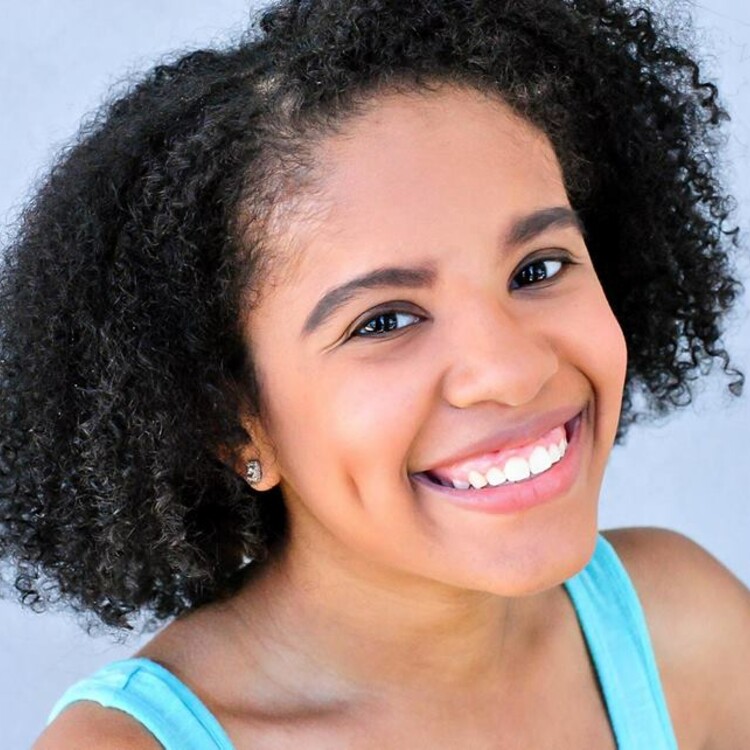
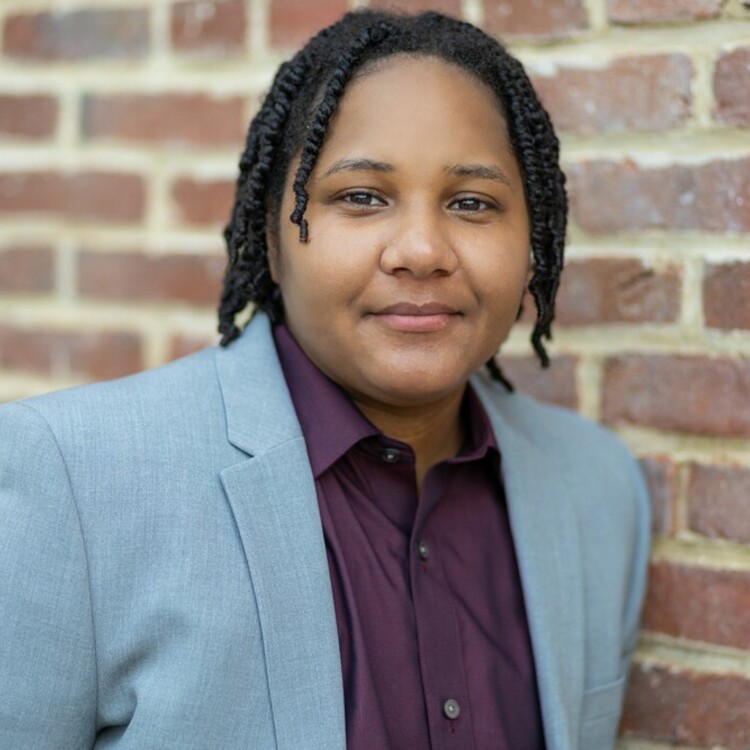
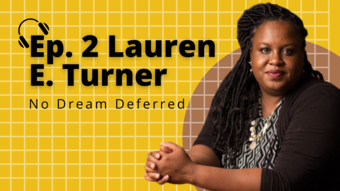


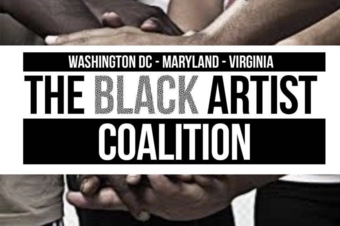




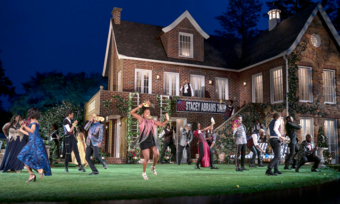

Comments
The article is just the start of the conversation—we want to know what you think about this subject, too! HowlRound is a space for knowledge-sharing, and we welcome spirited, thoughtful, and on-topic dialogue. Find our full comments policy here
REGARDING: The very firs paragraph of your GREAT article, occasionally one unearths an old fart who has some relevant information. To say James Baldwin "wanted to try his hand" is a bit inaccurate. It actually took Owen Dodson some time and energy to persuade Mr. Baldwin to write a play and and Mr. Baldwin more-or-less lived in Owens apartments (actually two of them) in D.C. while he wrote it. I was not at Howard when it happened but I became the Designer/Tech Director at Howard some years later. Owen was a great story-teller, and when many of Mr. Baldwin's relatives arrived and stayed at his place in the days up to and including the opening was one of Owen's favorites. Dr. Ted Shine might have actually been at Howard as a student when it happened. Ted may still be alive and living in Texas. I first saw the play (before Broadway) in Los Angeles, directed by Frank Silvera. I have directed it twice-- once at Florida A&M and a few years later for the Morehouse-Spelman Players.
Thank you so much for sharing this! I should clarify - when we say that Mr. Baldwin wanted to try his hand at theatre, we wanted to indicate his necessary inclusion in the black theatre canon. But the information you've provided is a wonderful addition to the rich history of The Amen Corner and I thank you so much for these thoughts. It's always such a treat to encounter people who have worked and collaborated with the people we merely get to study and read about, so this is so insightful for us! Thank you, Dr. Molette!